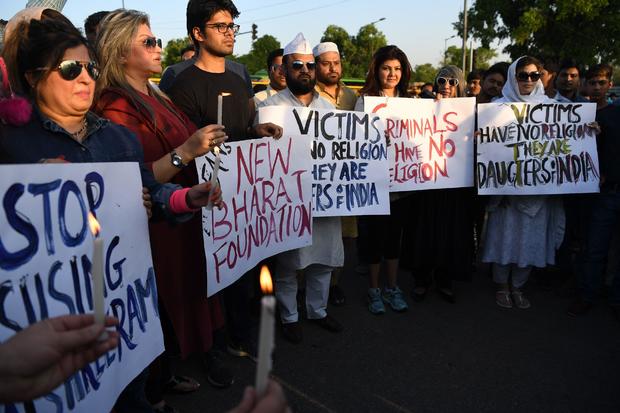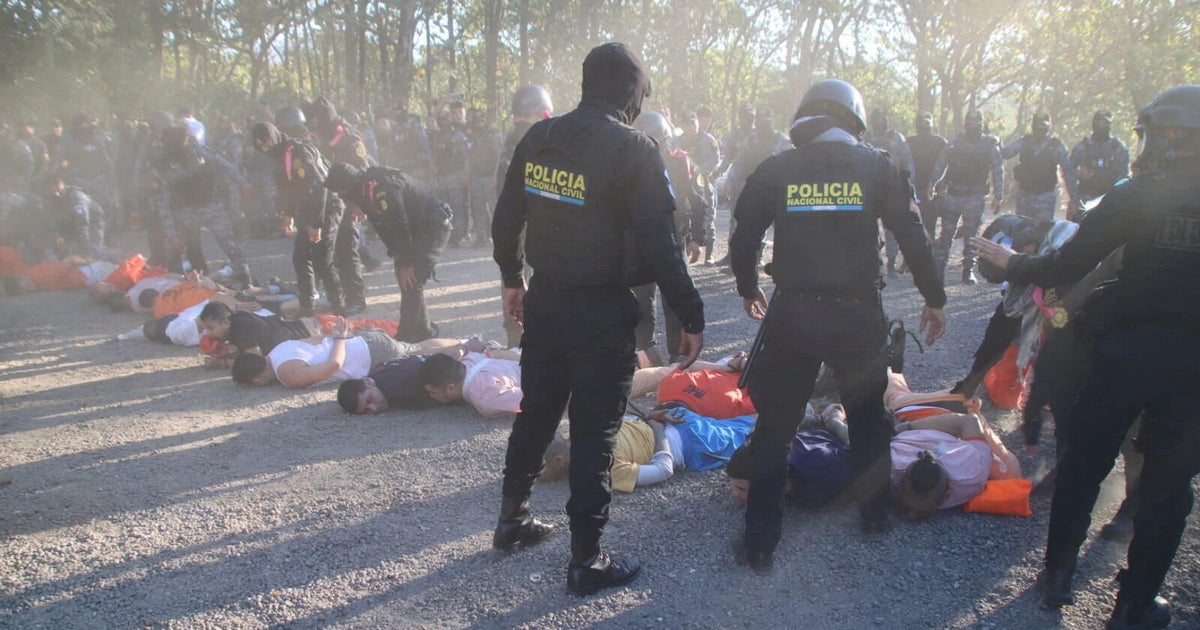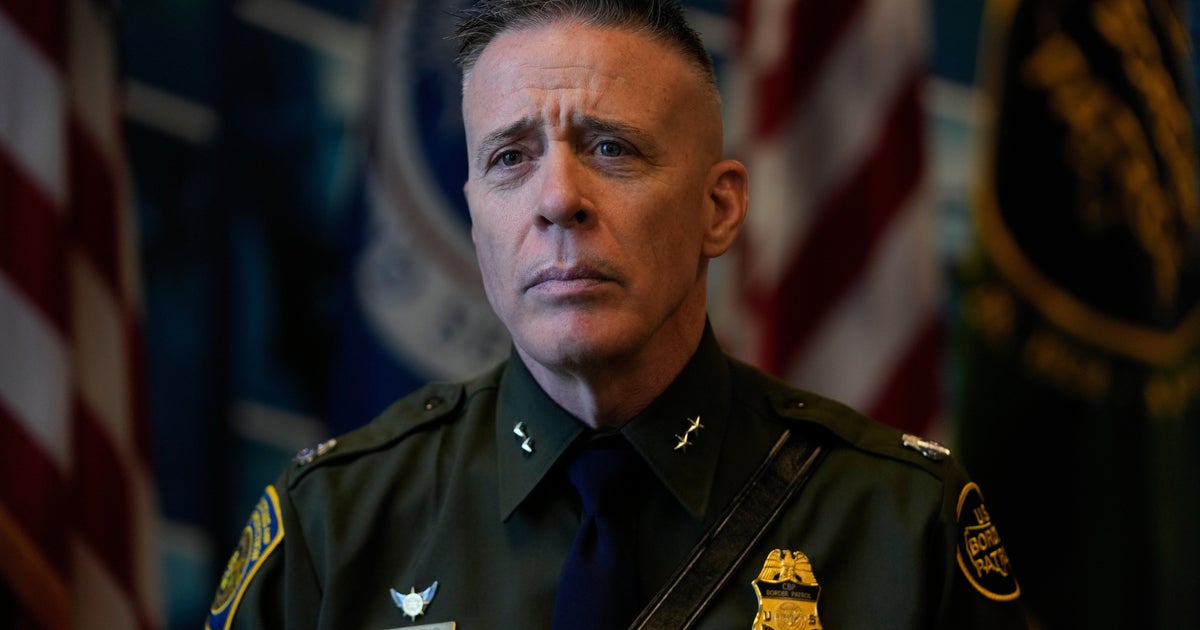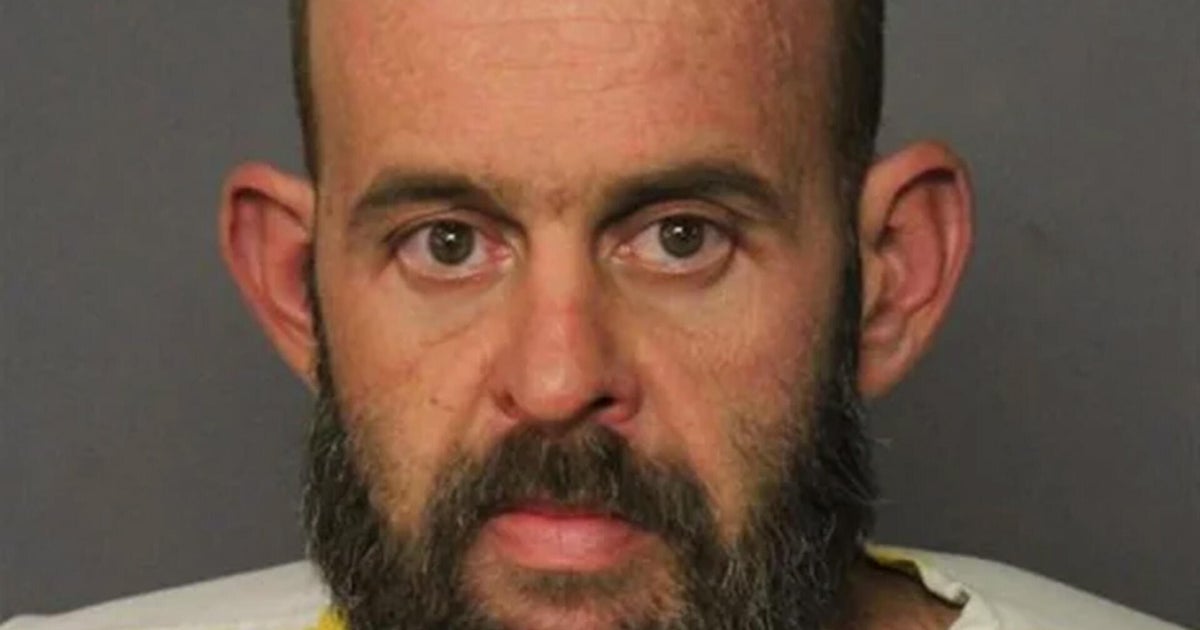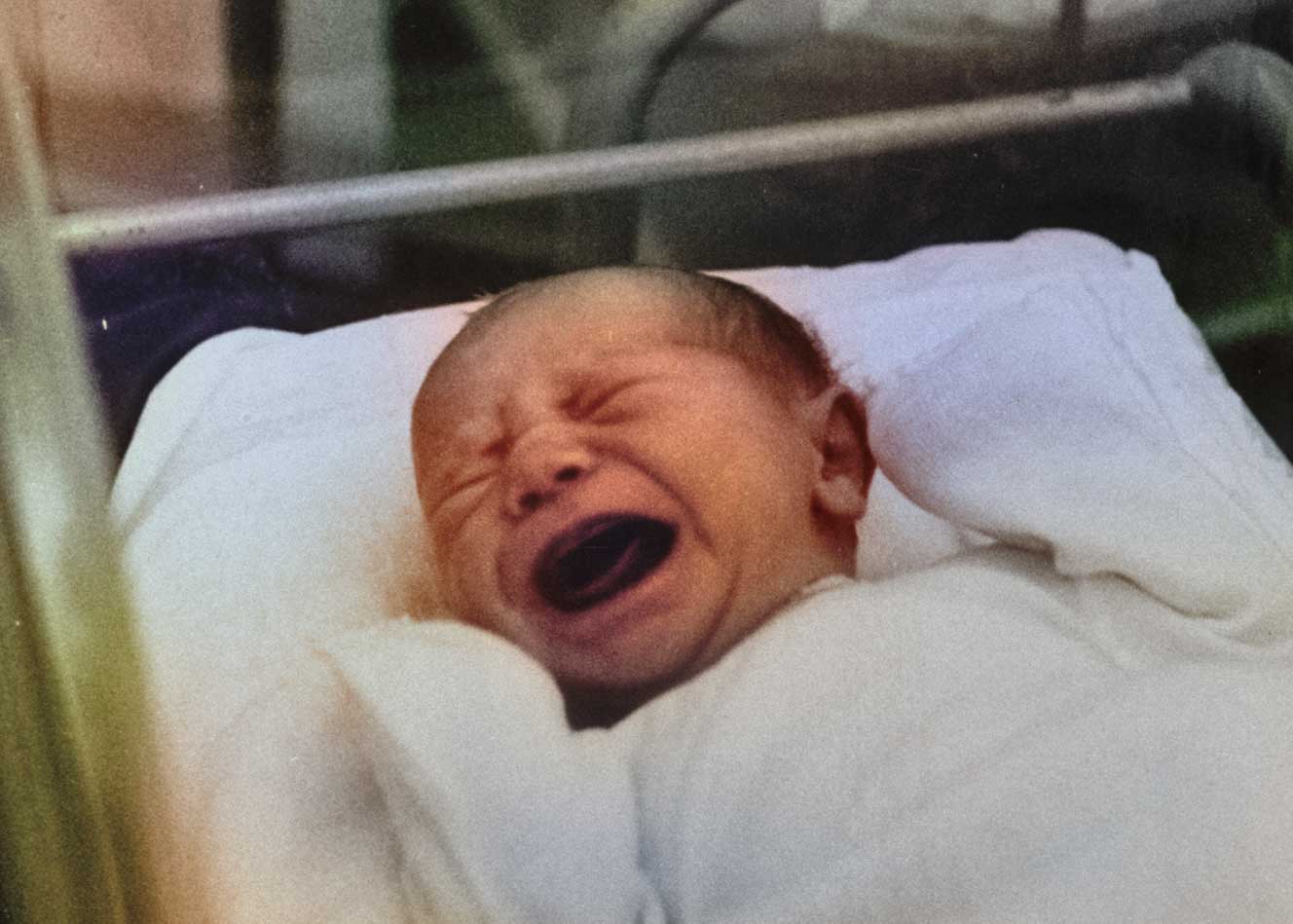Young girl's brutal rape and murder highlights a religious divide
NEW DELHI -- Four months after the gang rape and murder of eight-year-old girl in a small north Indian town, the investigation into the case has highlighted the volatile religious fault lines in a country with a terrible record of sectarian violence. The brutal killing of Asifa Bano in the town of Kathua might have been just another small addition to the staggering statistics in India, where more than 100 rapes on average were recorded every day in 2016 -- had she not been a Muslim and all her alleged attackers Hindus.
Given those circumstances, there have been protests and business shutdowns -- not only in anger over the rape and murder, but also in defense of the men accused. Thousands of members of radical Hindu groups have rallied in their support. On Monday, a group of slogan-chanting lawyers tried to stop police from entering a court to file charges against the accused.
Hindu right wing activists want the investigation to be handed over to India's Central Bureau of Investigations (CBI). The bureau is directly controlled by the federal government, which is run by the right-wing Bhartiya Janata Party (BJP). Many see it as a possible means of diluting the case against the accused.
Asifa, whose family is part of the Muslim nomadic Bakarwal community, went missing on January 10. Police say she was kidnapped from a meadow, drugged and then taken to a Hindu temple, where she was repeatedly raped for three days. A week later, her blood-stained body was found in a forest.
Police have arrested eight men, including two police officers. The police charge sheet, based on the interrogation of the arrested men, statements from more than 130 witnesses and DNA test results, includes chilling details of the alleged crime.
Police say the mastermind was 60-year-old Sanji Ram, custodian of the temple where Asifa was allegedly raped several times by at least three men. Ram hatched the plan to terrorize and drive out the Muslim nomads from the Hindu-majority area, it is alleged. Police say Ram was "against the settlement of Bakarwals" in the area, and had been "motivating the members of his community not to provide land (to them) for grazing (their cattle)."
On Tuesday, Police told the court that the girl was drugged, locked inside the prayer hall and that Sanji Ram "performed rituals" before she was raped. Ram's nephew even invited his cousin from a town 300 miles away to come and "satisfy his lust," the court was told.
Two police officers, accused of accepting hefty bribes from Ram to cover-up the case, were among those arrested. According to the police, when Ram finally ordered the killing of the girl, one of the police officers, Deepak Khajuria, told the other suspects to wait "as he wanted to rape the girl before she is killed."
Asifa was allegedly killed by Ram's nephew, who is accused of strangling her and then hitting her head twice with a stone.
Many Indians voiced outrage after police filed the charges in court earlier this week, making the chilling details of the crime public for the first time. The protests supporting the alleged rapists and killers have only fuelled that outrage.
